Haymarket Opera opens season with Chicago debut of an excavated “Ester”
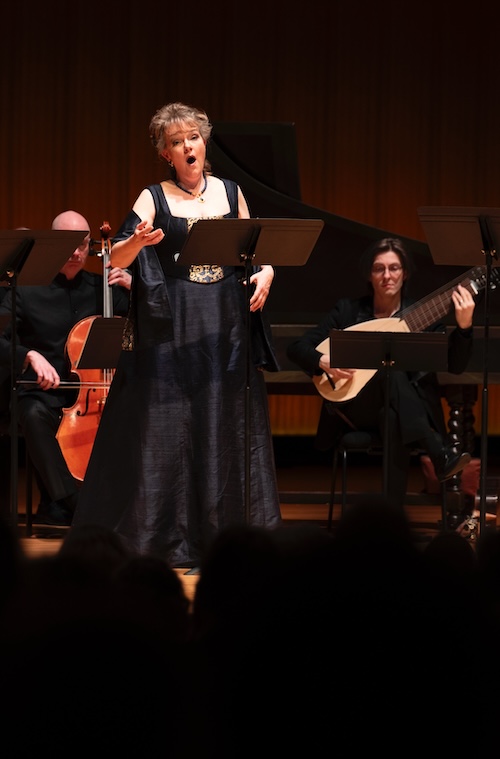
Around this time in Chicago, each year, a small miracle occurs: As months of frost and biting winds begin to relent, the first green shoots of spring begin to emerge from the ground.
That rebellious occurrence, even in the midst of persistent cold, is a fitting metaphor for a different kind of miracle—namely, the one portrayed in Alessandro Stradella’s oratorio Ester, liberatrice del popolo ebreo, which received its own unearthing with a stellar Chicago premiere by the Haymarket Opera Company Friday evening at Gannon Hall on DePaul University’s campus.
The oratorio retells the Biblical story that is the basis for the springtime Jewish holiday of Purim, in which the protagonist, Esther (Ester), marries the Persian king Ahasuerus (Assuero), though he is oblivious to her heritage. Meanwhile, the king’s right-hand man, the power-hungry Haman (Aman), inflamed by the resistance of Esther’s cousin Mordecai (Mardocheo), launches a plot to eradicate the Jewish people.
Mordecai implores Esther to use her privileged position to plead Ahasuerus’ mercy. Despite her fears of defying palace custom and revealing her Jewish identity to her husband, she summons the courage to confront the king, who, moved by her boldness, spares Esther’s people and condemns Haman for his wickedness.
Though Alessandro Stradella was prolific, his music has not enjoyed the same fortune of preservation as have some of his contemporaries. Of his eight known oratorios, only six have survived and what remains is fragmented. Little is known about Ester’s provenance, other than that the libretto was supplied by Stradella’s patron, the aristocrat Lelio Orsini, and that it was likely premiered prior to 1677 in Rome.
The extant manuscript similarly leaves many gaps: the instrumental ritornellos that serve as the work’s connective tissue, as well as the string parts for 19 of the work’s 22 arias, have been lost to time.
Despite these hurdles, or perhaps because of them, Haymarket’s advocacy remained entirely undiminished. The work’s themes of bravery in the face of harmful intent resonate deeply in 2025, so it’s no great surprise that this 350-year-old oratorio, though scarcely performed and having languished in obscurity for nearly three centuries, would find new life in this presentation.
Missing instrumental parts were substituted with convincing realizations by harpsichordist Jory Vinikour, and between each of the five cast members to the continuo ensemble, there was nary a weak link on stage.
Stradella’s score is affectively mercurial, demanding flexibility and virtuosity from each of its singers. Ester’s vivid arias are alternately introspective and extroverted, by turns surveying a character’s rumination with elegant lyricism or declaring resolute intent with difficult melismatic sequences.
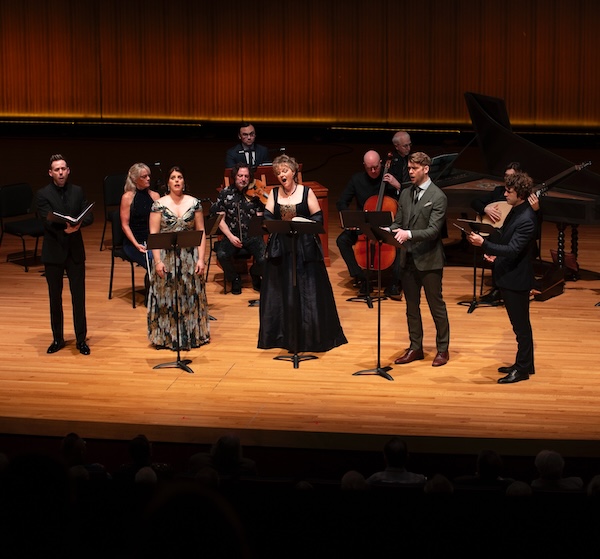
The cast delivered supple, potent performances tinged with masterful subtlety. Bass-baritone Christian Pursell capably portrayed Aman’s cartoonish villainy, with a huge, resonant voice and beautiful diction that underlined the character’s declarations of violence. Throughout the performance, his committed physicality lent a modicum of humor to the character to soften the impact of his stentorian vocal delivery.
Emily Birsan embodied Speranza Celesta with a radiance commensurate with her role. The soprano demonstrated effortless agility in the spiraling melismata of her arias in Part 1, while her warm, richly hued soprano flashed colors of mournfulness and righteous fury in reflecting on the plight of the Jewish people.
As Ester, soprano Kimberly McCord traced the through-line of the protagonist’s transformation with poise and conviction. Singing with plangent, voluminous tone and sumptuous phrasing throughout Part 1, she demonstrated her technical range in the early stanzas of Part 2 with soaring, musical leaps to her upper tessitura to underscore Ester’s defiance.
Countertenor Ryan Belongie, as Mardocheo, and bass Anthony Reed, who served the dual role of narrator Testo and King Assuero, each sang with polish and refinement.
Under the spirited direction of cellist and artistic director Craig Trompeter, the nimble continuo ensemble amplified the drama of the oratorio’s climax and underscored the denouement of Aman’s pitiful undoing with rumbling tones.
Haymarket Opera Company’s season continues June 27–July 1 with performances of Leonardo Vinci’s Artaserse at Jarvis Opera Hall. haymarketopera.org
Posted in Uncategorized
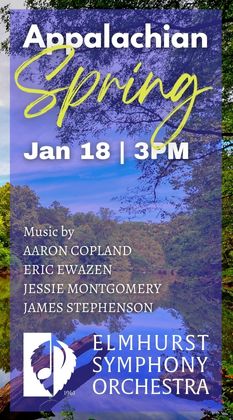
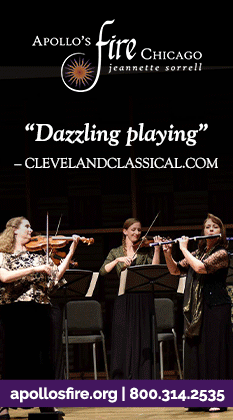


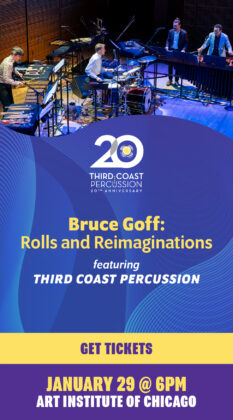
Posted Mar 30, 2025 at 6:37 pm by Charles
Kimberly McCord is one of the best sopranos in the Chicago area in decades. Her voice has a distinctive sound, a rarity in this era of generic sounding sopranos of technical ability. She is fabulous. Her voice gains in richness and amplitude as it rises. Glorious indeed. Christopher Pursell is another wonderful singer with a fabulous voice capable of precision in coloratura passage work, and a wonderful expansive top. And the low notes demanded for the role held no trepidation from him.
Posted Apr 04, 2025 at 10:28 am by Ruth Grant
My husband and I attended the oratorio and were also struck by the quality of the singers and the musicians.